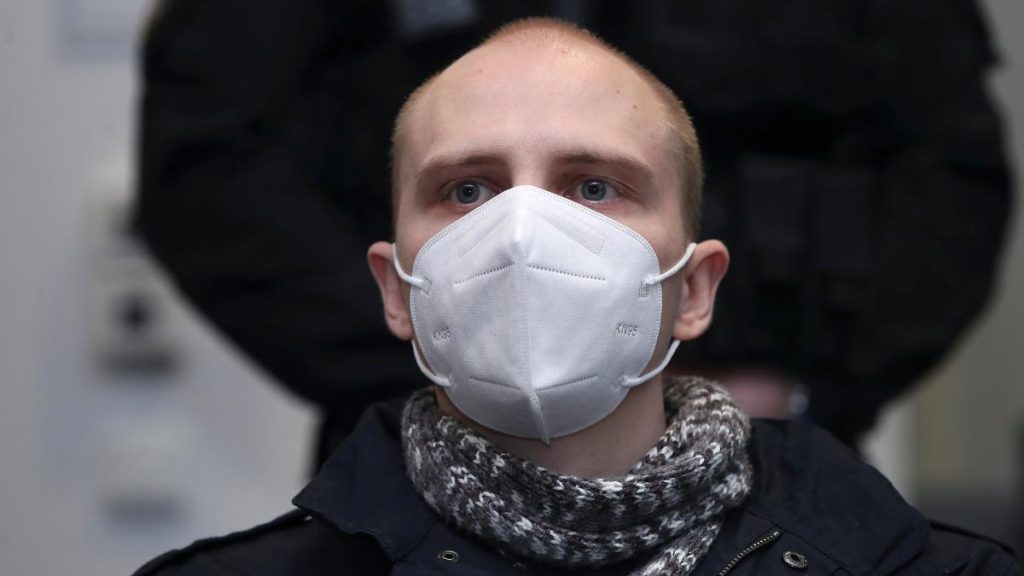Stephan Balliet, the perpetrator of the 2019 Halle attack, has been taken to a hospital in Erfurt due to health problems. The convicted attacker has been under high security since the attack at a synagogue in Halle, where he attempted to kill numerous people. According to reports from the “Mitteldeutsche Zeitung” and “Bild” newspaper, a spokesperson from the Thuringian Ministry of Justice confirmed that a prisoner was brought to the hospital in Erfurt for health reasons on Friday.
Balliet is serving his sentence at the Tonna prison near Bad Langensalza in Thuringia. The Thuringian State Police Inspection in Gotha stated that a “high-security prisoner from a correctional facility was escorted to a hospital in Erfurt and provided with medical care” under heavy police presence. The specific medical ailment was not disclosed by the authorities for “police tactical reasons.” The “Bild” newspaper reported that Balliet may have suffered a ruptured spleen and is refusing surgery, expressing a desire to die.
The Halle attack, which targeted a synagogue in Saxony-Anhalt, resulted in Balliet’s sentencing to life in prison with subsequent preventative detention in 2020. On October 9, 2019, during the Jewish holiday of Yom Kippur, he tried to storm the Halle synagogue and commit a massacre. When this failed, he killed two people near the synagogue. Furthermore, in February of this year, Balliet was convicted of a hostage situation at the Burg prison and sentenced to seven years in prison for attempting to escape.
Stephan Balliet’s actions in Halle were characterized by both racism and anti-Semitism. His attack highlighted the continued threat of far-right extremism and hate crimes in Germany. The incident shook the nation and led to increased security measures at synagogues and other potentially targeted locations. The fact that Balliet is facing health issues while incarcerated adds another layer of complexity to an already intense and tragic situation for all involved.
The specific circumstances surrounding Balliet’s health problems and potential self-harm raise questions about the level of care and oversight in the German correctional system. The decision of whether or not to perform surgery on an inmate who does not consent presents ethical dilemmas for medical professionals and law enforcement. The ongoing saga of Stephan Balliet serves as a reminder of the lasting impact of hate-fueled violence and the challenges of preventing and addressing radicalization and extremism in contemporary society.


